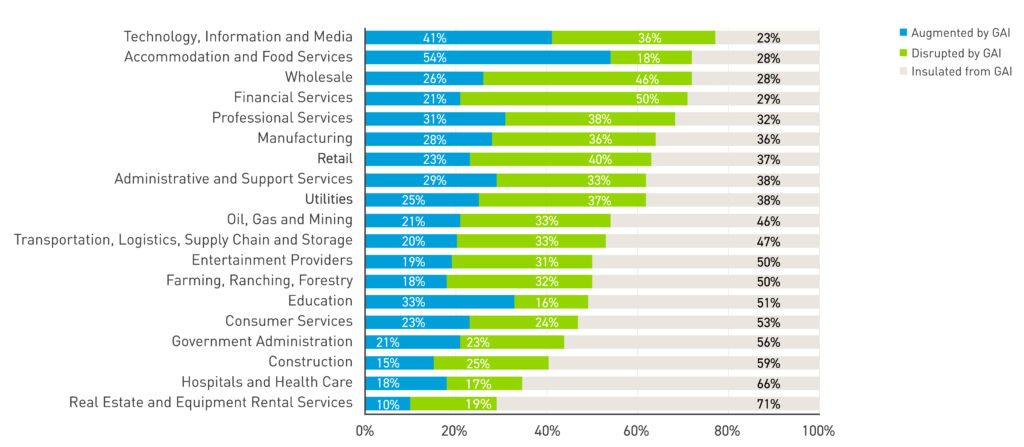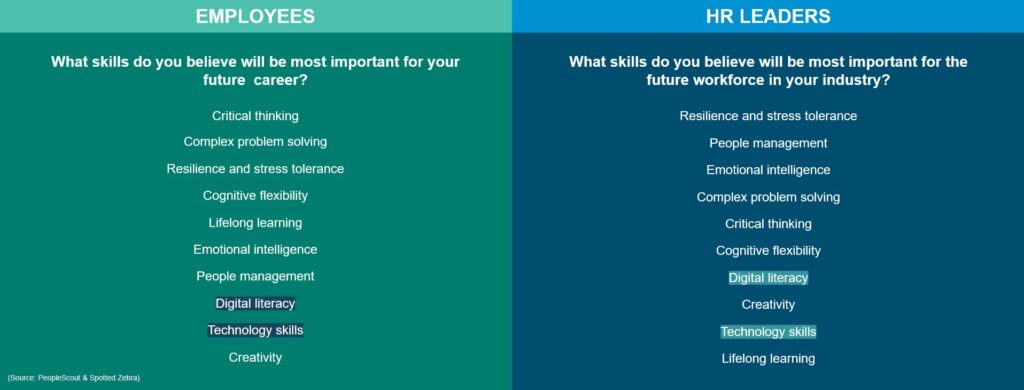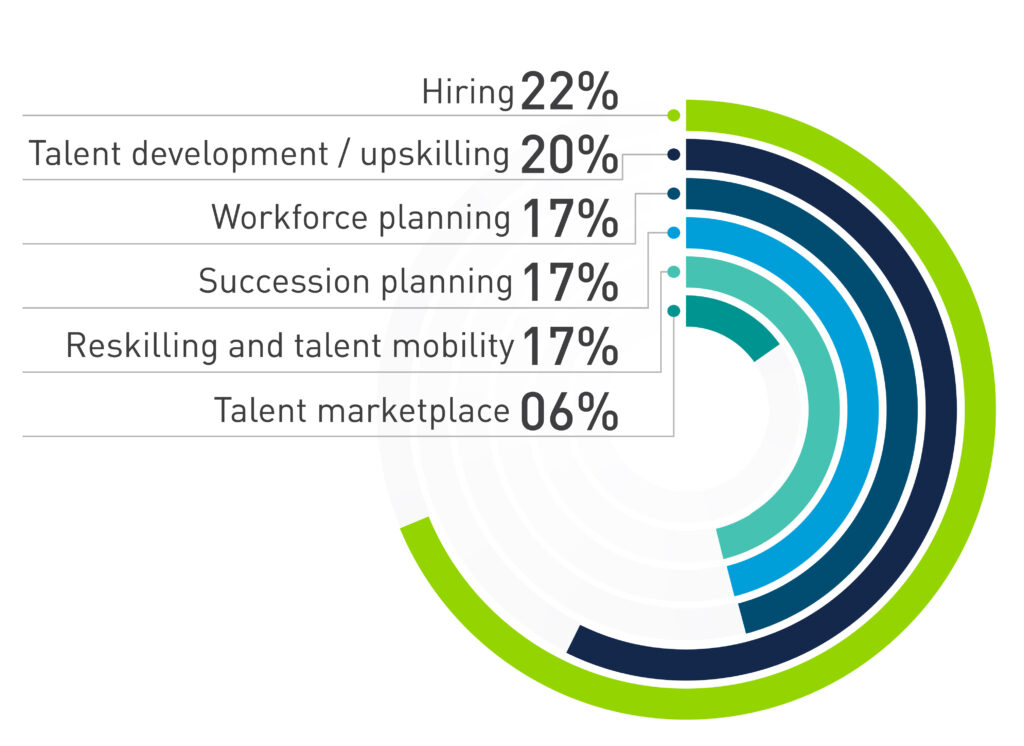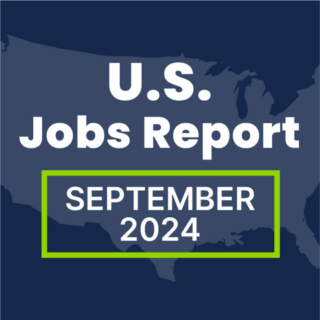By Simon Wright, Global Head of Talent Advisory Consulting
The workforce skills landscape is transforming at blinding speed. Automation, AI, sustainability initiatives, demographic shifts—global forces are conspiring to make skills gaps and talent shortages more acute by the day. Don’t think it’s moving that fast? Well, the World Economic Forum predicts that a jaw-dropping 85 million jobs could sit vacant by 2030, resulting in $8.5 trillion in lost revenue.
The very meaning of “skills” is shifting beneath our feet. Skills requirements have already changed 25% since 2015, and experts forecast 65% more change by 2030. However, companies still rely heavily on degrees and experience over skills when it comes to making hiring decisions. No wonder we’re careening towards a global skills crisis.
PeopleScout partnered with skills-based workforce management platform provider Spotted Zebra to survey over 100 senior HR and talent acquisition leaders globally, plus over 2,000 employees worldwide, to compare perspectives. Our new research report, The Skills Crisis Countdown, maps the skills landscape and diagnoses the disconnects between employers and their workforce.
Read on for some key findings from our report.
HR Leaders are Ill-Prepared for the Skills Crisis
According to a study by PwC, 40% of global CEOs believe their business will be economically unviable in 10 years unless they reinvent for the future. Our study revealed that nine out of 10 HR leaders believe that up to 50% of their workforce will require new skills to effectively perform their job in the next five years. Yet, when asked if they are currently undergoing or planning a workforce transformation initiative in the next three years, nearly half (45%) of HR leaders admit to having no plans to undertake one.
So, in other words, half of employees will soon be underprepared for the future, but most companies have no strategy in place to address the issue.
According to LinkedIn, 84% of members are in occupations that could have at least one quarter of their core skills affected by generative AI (GAI) technologies, like ChatGPT. So, how are HR leaders preparing for this digital transformation and the AI era? Shockingly, a full third (34%) say they have no preparations in place to prepare for new technologies. Those who are preparing emphasize bringing in outside talent rather than reskilling existing employees.
Industry Composition by GAI Segment
Percentage of LinkedIn Members by Industry

This is likely because they lack an understanding of the skills they have within their existing workforce. Our data revealed that 68% of organizations identify skills from manager feedback, which is highly subjective. So, it’s no surprise that 56% of employees think their skills are underutilized in their current roles, and 61% think there are other roles in their organization where their skills could be utilized.
An unprecedented skills revolution is barreling down the tracks, but companies are fast asleep at the switch. It’s time to wake up and get employees future-ready or risk a global skills crisis and talent scarcity for decades to come.
Digital & Tech Skills Gaps are Widening but Tech Skills are Viewed as Unimportant
Both employers and employees dangerously underestimate the importance of tech and digital skills. In our survey, both parties listed tech and digital literacy skills with low importance. With the skyrocketing demand for tech and digital talent, this does not bode well.

Mobile apps, ecommerce and digital transformation have made technology integral to every corporate strategy. However, supply isn’t keeping up with demand. McKinsey analyzed 3.5 million job postings in high-tech fields and found there’s a wide divide between the demand for tech and digital skills and the qualified talent availability. The most sought-after skills have less than half as many qualified professionals per posting compared to average global figures.
No wonder 63% of HR leaders in our survey admit they struggle to recruit the skills they need. Closing tech and digital skills gaps through recruitment alone is no longer sufficient. So, we were concerned when our research showed that 73% of the workforce haven’t been offered opportunities to reskill.
Organizations must invest in helping their employees evolve their skills via reskilling and internal mobility to cultivate digital and tech literacy across their entire workforce.
Case Study: Reskilling in Action
The Challenge:
A large global financial services company needed to undertake a major digital transformation program. The organization needed to acquire key digital and tech skills while leveraging the existing company knowledge of employees in declining customer service roles by reskilling them.
Previous efforts by the organization to assess employees’ suitability for reskilling were led internally and included multiple, time-consuming line manager interviews. Of even greater concern, around a quarter of those who began the reskilling program dropped out.
The Solution:
The bank worked with their long-time RPO partner, PeopleScout, and Spotted Zebra to assess customer service staff in bank branches and call centers to find ideal candidates for its tech and digital skilling program. Skills profiles were created for tech roles, which employees were assessed against to find the best fit.
The Results:
- Redeployed 150 people, saving over $2.5M in exit costs
- Saved over $350,000 in training and development costs
- Reduced time investment by hiring managers
- Reduced the reskilling cost-per-person by 70%
Employees Don’t Feel Confident in their Skills for the Future
A third (34%) of workers have doubts about how their skills will keep pace with new technology and automation. Meanwhile, just 17% of organizations are offering targeted reskilling programs for existing employees.
Where are HR Leaders Deploying Skills-Based Practices?

This imbalance spells disaster. As change overwhelms existing skill sets, most workers will begin to feel unsure of their career paths or left struggling to stay relevant.
Investing in reskilling makes solid business sense. We must bridge the gap between workers anxiously facing uncertainty and leaders failing to invest in their resilience. HR leaders who empower their workforce with adaptable skill sets today will drive continued success in times of swift and sweeping change.
Finding a Talent Partner to Support Your Skills Transformation
The agility to match emerging skill requirements will soon become a competitive necessity. If you haven’t started your skills-based transformation, now is the time.
In our survey, one in two HR leaders admitted to a lack of understanding of skills-based practices. If you’re struggling to understand how to take advantage of skills-based practices in your organization, PeopleScout is here to be your guide.
As a recruitment process outsourcing (RPO) partner, we can help you understand the skills within your existing workforce as well as the external market supply and demand. We offer solutions across the skills agenda, from skills-based talent intelligence and market insights, building skills frameworks, and creating skills-based success profiles to redesigning recruitment processes, skills-based hiring strategies, and helping you maximize the potential of your existing workforce.
To learn more about PeopleScout’s skills-focused talent solutions, get in touch.




